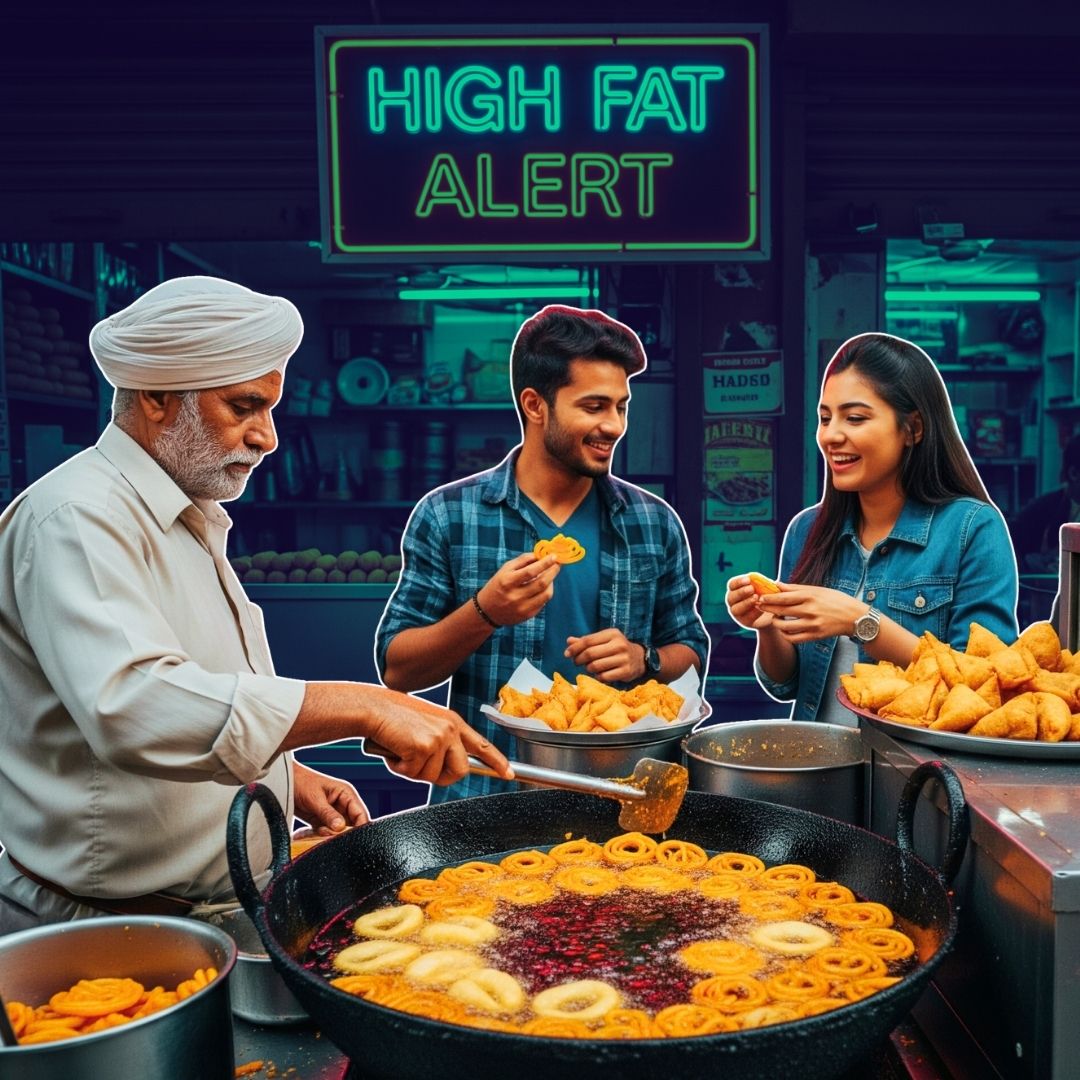The Union Health Ministry has asked all government departments to display detailed nutritional information—specifically the amount of oil, sugar, and trans fats—in popular Indian snacks such as samosas, pakoras, chai biscuits, and jalebis in cafeterias, lobbies, and meeting rooms. This initiative aims to raise awareness about hidden health risks amid the growing burden of lifestyle diseases in India.
The campaign will first roll out in AIIMS Nagpur, featuring calorie count posters alongside food stalls, and later expand to other cities, according to The Hindu. Officials also recommended promoting healthier food options and physical activity in government workplaces to combat obesity and other non-communicable diseases, which are predicted to affect nearly 45 crore Indians by 2050.
Nudging Healthier Habits Through Transparency
Union Health Secretary Punya Salila Srivastava explained that the ‘Sugar and Oil Boards’ initiative is designed as a visual behavioural nudge to promote healthier dietary choices in schools, offices, and public institutions. “These boards serve as visual behavioural nudges…displaying key information about hidden fats and sugars in everyday foods,” she said.
AIIMS Nagpur will pilot the programme with calorie count posters that clearly indicate sugar, oil, and trans-fat content alongside popular snacks, along with warnings about the long-term risks of frequent consumption. A senior health official added, “The goal is to promote moderation, not restriction,” highlighting the focus on informed choices rather than forbidding popular foods.
Context: India’s Growing Burden of Unhealthy Diets and Lifestyle Diseases
This initiative comes amid alarming health statistics outlined in a recent Lancet study referenced by the Health Secretary, which predicts that by 2050, around 450 million Indians could be overweight or obese—placing India second only to China globally in these numbers.
The World Health Organisation has repeatedly warned that widely available, inexpensive processed foods high in unhealthy fats, sugars, and salt significantly contribute to non-communicable diseases such as diabetes, heart disease, and cancers. The Health Ministry’s letter also urged government offices to promote physical activity by encouraging stair use, short exercise breaks, and providing healthier food options, aiming to foster a supportive environment for healthier living.
The Logical Indian’s Perspective
India’s rich culinary tradition is a source of pride and pleasure for many, yet the rise of lifestyle diseases demands a thoughtful reassessment of our food choices.
The Health Ministry’s transparency campaign is a positive step toward empowering citizens to understand what goes into their favourite snacks and balance enjoyment with health. Encouraging moderation and informed decisions—rather than outright bans—respects cultural tastes while addressing public health challenges.











